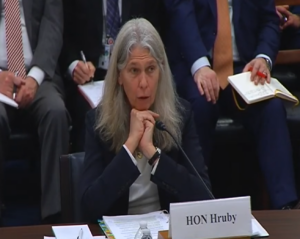
A labor shortage initially blamed on COVID-19, but which has outlasted the nationwide response to the pandemic, hamstrung construction of new nuclear weapons factories and forced a construction triage at the National Nuclear Security Administration (NNSA), the agency’s administrator told lawmakers Tuesday. The construction or “craft” labor shortages at various sites contributed to several program delays, including planned plutonium pit production facilities in New Mexico and South Carolina and the Uranium Processing Facility in Tennessee, Jill Hruby, administrator of the…













